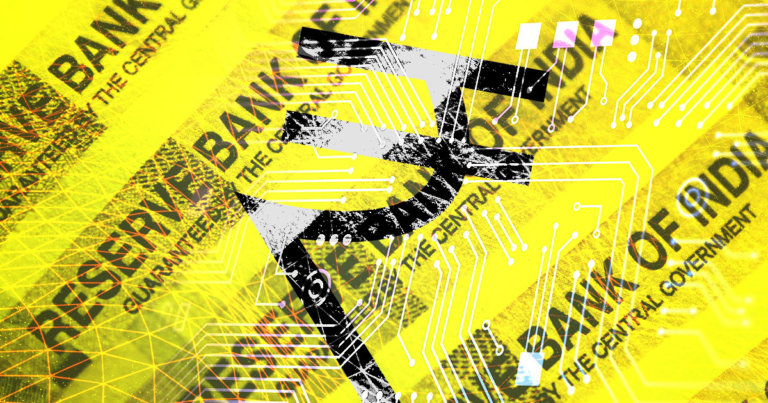 India’s central bank plans CBDC launch in 2022 with help from fintechs, public banks
India’s central bank plans CBDC launch in 2022 with help from fintechs, public banks India’s central bank plans CBDC launch in 2022 with help from fintechs, public banks
The Reserve Bank of India (RBI) is currently consulting fintech companies and asked four public sector banks to pilot India's CBDC project later this year.

Cover art/illustration via CryptoSlate. Image includes combined content which may include AI-generated content.
The Reserve Bank of India (RBI) is engaged in talks with fintech companies and four public sector banks to pilot Central Bank Digital Currency (CBDC) project, with a potential launch planned later in 2022, Moneycontrol reported Sept. 5.
Fidelity National Information Services (FIS) is reportedly one of the companies the central bank is consulting. FIS offers banks a central infrastructure payment solutions to build or update their real-time payments systems as well as a CBDC Virtual Lab to support countries to pilot CBDC programs, according to an Aug. 25 news release.
The fintech company is advising central banks on CBDC topics such as offline and programmable payments, money regulations, financial inclusion, and cross-border CBDC payments.
Julia Demidova, senior director at FIS, told Moneycontrol:
“FIS has had various engagements with the RBI…and, of course, our connected ecosystem could be extended to the RBI to experiment various CBDC options”
Full steam ahead for CBDC launch
In a speech on the federal budget in February, India’s finance minister, Nirmala Sitharaman, announced that it will launch a CBDC this year. She claims it will be the digital form of the physical rupee that can be exchanged for one another and will be regulated by the RBI.
Following Sitharaman’s speech, Union Commerce and Industry Minister Piyush Goyal said RBI’s CBDCs will become India’s official and legal tender. He added that the Indian government does not recognize private cryptocurrencies as legal tender, but a 30% crypto tax will be applied if citizens wish to hold the asset. All non-RBI-issued cryptocurrencies, including Bitcoin and Ether, are considered private cryptocurrencies.
In May, the RBI proposed to adopt a “graded approach” to launch India’s CBDC in its annual report 2021-22, stating:
The Reserve Bank proposes to adopt a graded approach to introduction of CBDC, going step by step through stages of proof of concept, pilots and the launch.
On July 18, Sitharaman made further comments on cryptocurrencies on behalf of RBI, expressing concerns about the “destabilizing effect of cryptocurrencies on the monetary and fiscal stability of a country” and said a legislative framework should be implemented in the sector.
“RBI is of the view that cryptocurrencies should be prohibited,” she added.




 Arkham Intelligence
Arkham Intelligence 

 Farside Investors
Farside Investors 
 CryptoQuant
CryptoQuant 
 CoinGlass
CoinGlass 






































































































